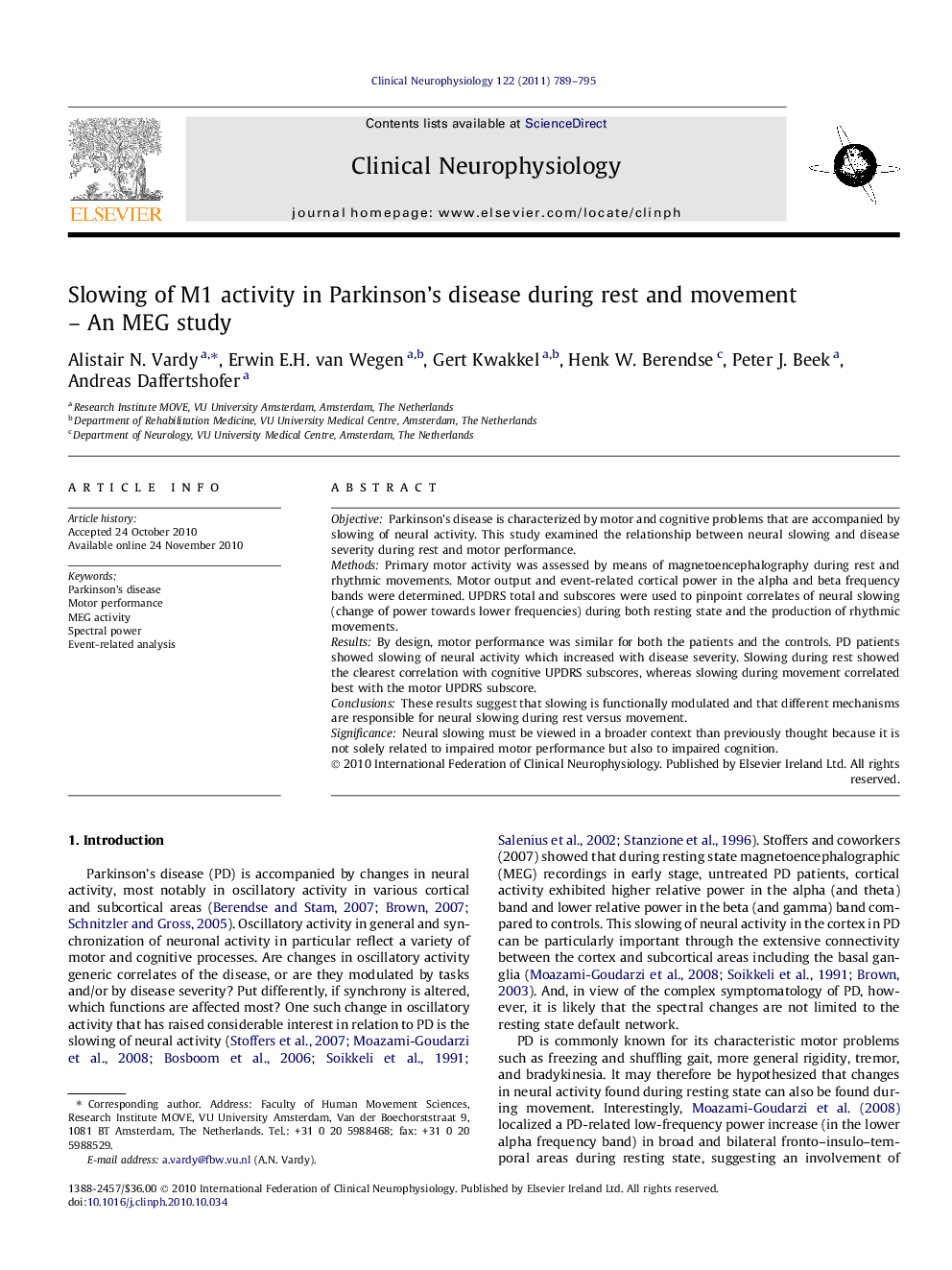| Article ID | Journal | Published Year | Pages | File Type |
|---|---|---|---|---|
| 6009114 | Clinical Neurophysiology | 2011 | 7 Pages |
ObjectiveParkinson's disease is characterized by motor and cognitive problems that are accompanied by slowing of neural activity. This study examined the relationship between neural slowing and disease severity during rest and motor performance.MethodsPrimary motor activity was assessed by means of magnetoencephalography during rest and rhythmic movements. Motor output and event-related cortical power in the alpha and beta frequency bands were determined. UPDRS total and subscores were used to pinpoint correlates of neural slowing (change of power towards lower frequencies) during both resting state and the production of rhythmic movements.ResultsBy design, motor performance was similar for both the patients and the controls. PD patients showed slowing of neural activity which increased with disease severity. Slowing during rest showed the clearest correlation with cognitive UPDRS subscores, whereas slowing during movement correlated best with the motor UPDRS subscore.ConclusionsThese results suggest that slowing is functionally modulated and that different mechanisms are responsible for neural slowing during rest versus movement.SignificanceNeural slowing must be viewed in a broader context than previously thought because it is not solely related to impaired motor performance but also to impaired cognition.
